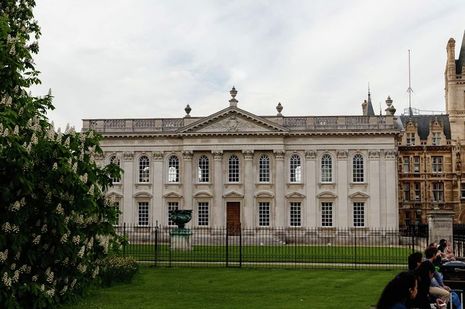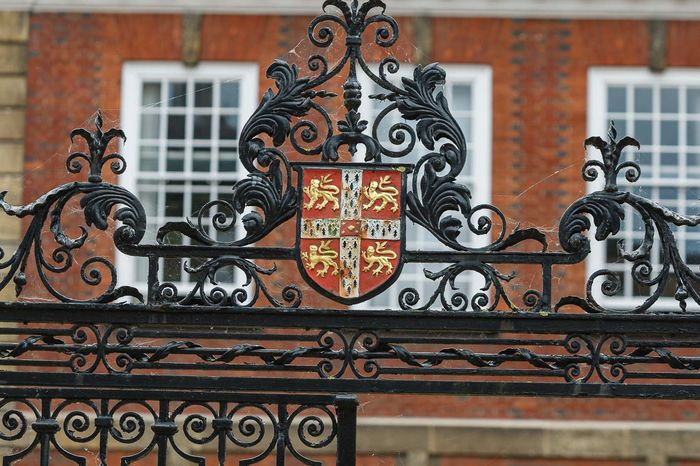Uni error forces deeper spending cuts
This comes as the Uni reduced its projected deficit from £62.6 million to £39 million for next year after imposing controversial spending cuts across all departments

The University of Cambridge has reduced its projected deficit from £62.6 million to £39 million for next year after imposing controversial spending cuts across all departments, an internal report has revealed.
But Varsity can reveal that flaws in the University’s financial modelling mean the real-terms reduction, initially supposed to be 5% cuts over 2024/25 and 2025/26, will now be higher than planned in the next academic year, as Cambridge has underprojected inflation for the coming academic year.
Under the University’s financial system, departmental “Chest” allocations – the core funding used for teaching, research, and administration – are adjusted each year to account for inflation before any planned savings are applied. If inflation is underestimated, those allocations fail to keep pace with rising costs.
The Board of Scrutiny’s latest annual report credited the narrowing of the deficit largely to this two-year 5% savings programme, introduced last year.
Following Planning and Resources Committee (PRC) recommendations, the University’s Schools and Non-School Institutions were reduced by an initial 1% in 2024-25, with the other 4% due in 2025-26 according to the initial plans.
However, the inflation rate built into these calculations – taken from the University’s “10-Year Model” – assumes overall inflation of just 2.6% for 2025-26, well below the CPI’s current figure of around 4%.
Staff promotions, new compliance costs under the Employment Rights Bill, and potential tax rises in the upcoming Budget are expected to push Cambridge’s effective inflation rate even higher. As a result, departments face a 4% cut this year and will need to reduce spending by around another 1.4% next year simply to maintain balance with rising prices.
According to an unreserved business paper seen by Varsity, the University has indicated that it “may” increase departmental funding to recognise this higher inflation rate, but has neither committed to discussing mid-year increases in departmental spending to cope with inflation nor to funding this problem.
The University Board of Scrutiny’s annual report, published last week, offers the clearest picture yet of how these cuts are shaping Cambridge’s finances.
The report warned that Cambridge’s financial position “remains of concern,” despite “some progress” with the headline reduction of the deficit.
It stated: “Some progress has been made: in 2024-25 the Chest projected expenditure deficit was reduced to £62.6m, while, for the current year, 2025-26, the projected Chest expenditure deficit is £39.7m. However, the latter is after the previously announced 5% cut in Chest allocations.”
The Board also expressed unease over the uniform approach to cost-cutting, describing the initial 5% savings as a “blunt instrument” that failed to account for the differing circumstances of each School or Department.
While the Heads of Schools agreed that the savings target was “achievable,” the Board warned that some institutions were deferring difficult decisions by drawing on reserves, while others were freezing academic appointments. This stood in contrast to the University Council’s stated aim that “cuts should not affect our academic offering”.
It also raised concern over the lack of transparency, noting that “there is apparently no mechanism to report precisely how the cuts are being made, without which the Council’s wish that academic delivery not be impacted cannot readily be measured”.
The University has run a Chest deficit every year since 2016-17, reaching a peak of £89.5 million in 2023-24. The Board described the ongoing shortfalls as “significant,” noting that Cambridge’s Chief Financial Officer had previously pledged to restore a “sustainable annual surplus over time” through revenue growth and efficiency improvements.
University Councillor Daragh O’Reilly told Varsity: “The University’s call for cuts is as irrational as it is inequitable. While Cambridge’s tech-and-tourism economy booms, we should grow our income as a local economic leader, rather than cut back. When the University’s own research says our city’s GDP is growing 60% faster than the UK average, anchor institutions like ours should invest in growth, not austerity.
“Paired with recently-hiked tuition fees, students must ask whether they can stomach the biggest cuts in decades. Backing down cannot and should not be an option. Making money from Cambridge’s brains is a no-brainer; firing the people who teach them is brainless. There is a better path. Only if we students fight for it,” O’Reilly continued.
This follows several years of financial turbulence at the University. Last year, Varsity revealed that Cambridge was projected to record a £53 million deficit for 2023-24, with the Board of Scrutiny suggesting at the time that “there is no clear understanding” of why this happened.
Tuition fees in England, currently £9,535, were raised last year for the first time in over a decade. They are set to rise annually with inflation from 2026 onwards, following a government announcement earlier this year.
This has coincided with a sharp rise in redundancy spending across the central University. Freedom of Information requests obtained by Varsity show that Cambridge spent £78,263 on staff severance pay between December 2023 and 2024, nearly five times the £16,848 spent in the previous year.
It also comes amid a wider financial crisis across UK higher education. A quarter of leading universities have begun large-scale staff reductions or budget cuts, with The Guardian projecting up to 10,000 job losses nationwide by the end of the year.
Meanwhile, more than a third of Russell Group institutions have introduced voluntary severance schemes or major restructures in response to mounting deficits. The University of Nottingham has announced plans to cut around 260 professional-service roles, while Cardiff University is consulting on proposals to reduce its academic workforce by about 400 posts.
The University of Cambridge was contacted for comment.
 News / Cambridge academics sign open letter criticising research funding changes22 February 2026
News / Cambridge academics sign open letter criticising research funding changes22 February 2026 News / Supporters protest potential vet school closure22 February 2026
News / Supporters protest potential vet school closure22 February 2026 News / University Council rescinds University Centre membership20 February 2026
News / University Council rescinds University Centre membership20 February 2026 News / Hundreds of Cambridge academics demand vote on fate of vet course20 February 2026
News / Hundreds of Cambridge academics demand vote on fate of vet course20 February 2026 Comment / A tongue-in-cheek petition for gowned exams at Cambridge 21 February 2026
Comment / A tongue-in-cheek petition for gowned exams at Cambridge 21 February 2026









